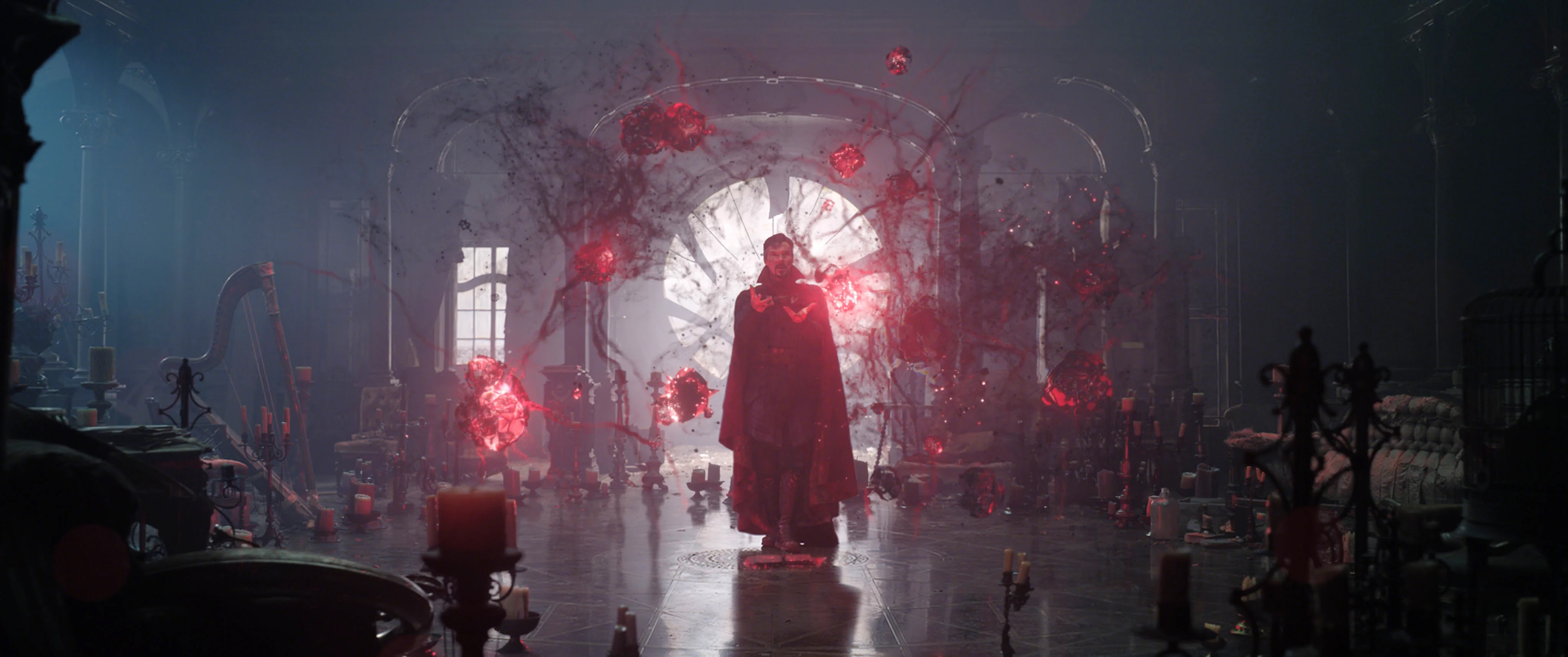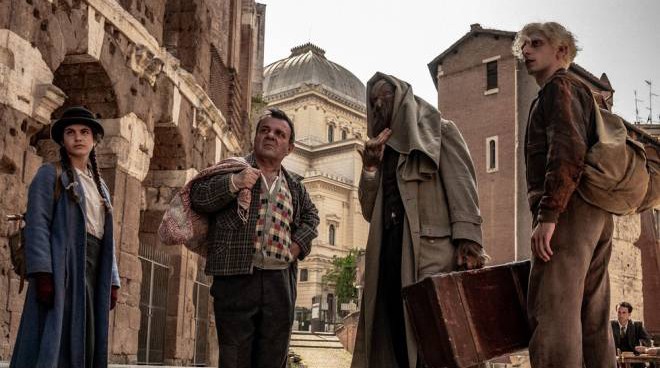Doctor Strange in the Multiverse of Madness
The right answer to the Marvel Cinematic Universe's post Endgame stagnation is concealed in the positive aspects of the Doctor Strange sequel, and the persistent influence excercised by Sam Raimi's presence in the director's chair.
 |
It is no secret that Marvel's phase four struggled to maintain a cohesive direction and build-up that could match the decade long evolution from Iron Man to Avengers: Endgame, or that solo movies following Captain America: Civil War were often disappointing or inconclusive on their own, very repetitive and hardly distinguishable one from the other (with a few exceptions - namely, Thor: Ragnarok). If the hype fro No Way Home is to be cast aside, that film fits in this formula, with the additional factor of extensive fans service devoid of storytelling logic.
While fan service is not absent in Multiverse of Madness, it certainly does not dictate the narration in the slightest, and mostly remains as an accesssory rather than a story-determining element. The sequel is allowed to focus on its own story without major distractions, and does not waste time with a build up in the first act following the introductory action scene as is the pattern of other Marvel films.
Definitely far from from perfect, the storyline of the film is perhaps one of the best ones as for the stand-alone films, and the best aspect it the complexity of the villain, ascribable to Raimi's villains from the Spiderman trilogy starring Tobey Maguire. Similarly, the horrific and violent aspect of the film challenges the boundaries of PG-13, while simultaneously improving the quality of action sequences and photography, all thanks to Raimi's palpable intervention: Strange lives up to the Raimi Spiderman trilogy in all aspects of its entertainment, character development (both for the antagonists and the protagonists) and authenticity.
The only major setback of the film is that it is a sequel to a film that did not provide enough meaningful insight in Strange's character while it built a most bland origin story, thus Madness, even though it is capable of providing a tighter bond between the viewer and the character's personal tragedy, it is limited by the lack of a build-up. Raimi's Spiderman trilogy provides a perfect opposite example, as the main character's evolution happens throughout three films, but in Strange: Multiverse of Madness it is an evolution that lacks a proper beginning that the first film should have provided, next to its visuals.
In other words, this film's success proves how the Marvel Cinematic Universe can only keep up its success if quality is again introduced. Sam Raimi's direction of Multiverse of Madness proves that what the MCU has built can hardly reach on its own the heights of the genre that were reached before Favreau's Iron Man, and hopefully the success of this film will point executives at Marvel Studios in the right direction.


Comments
Post a Comment